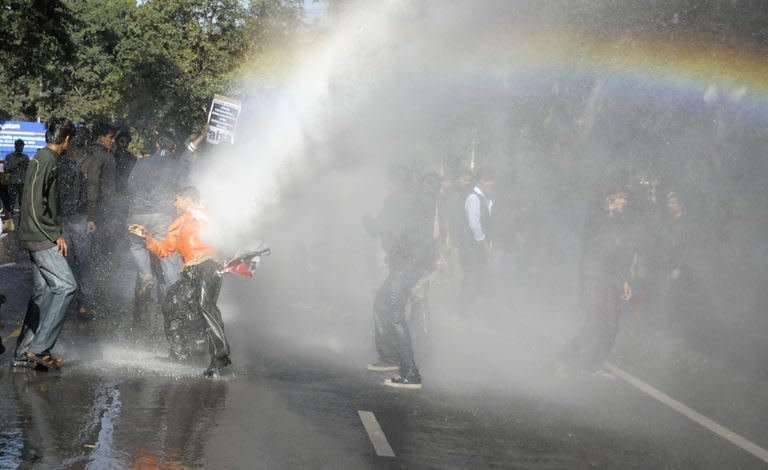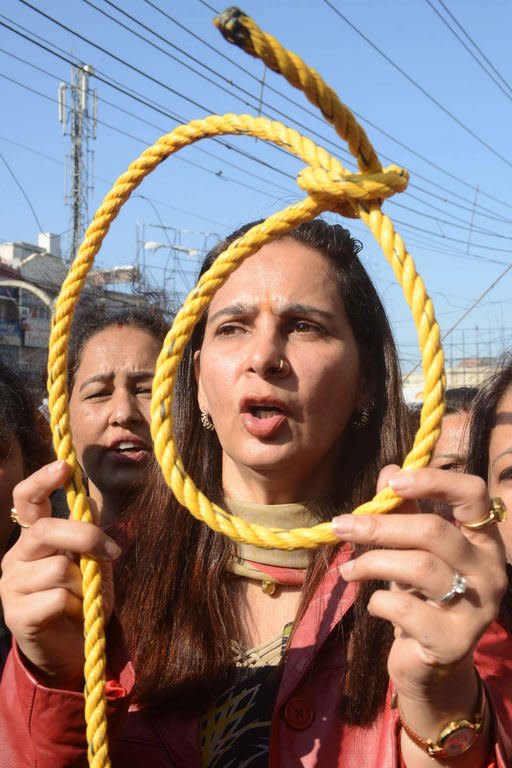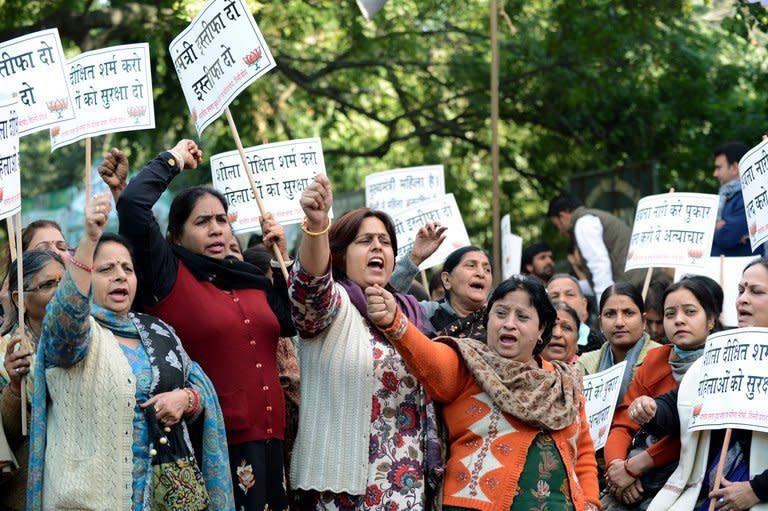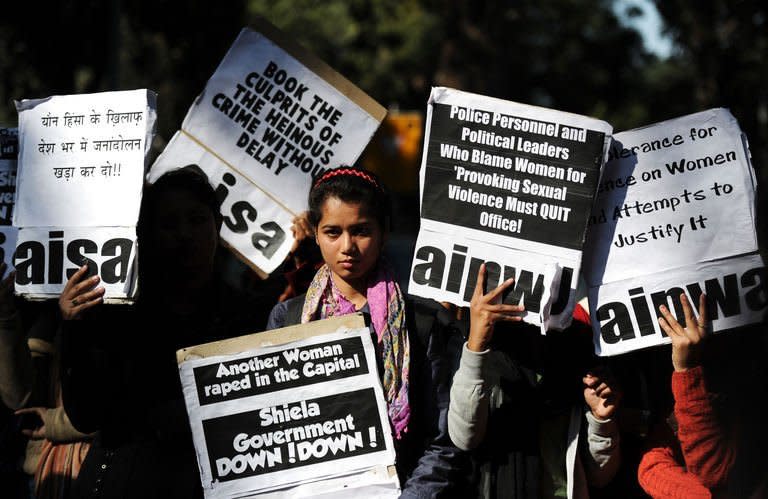Outrage over Delhi gang-rape swells across India
Riot police fired water cannon Wednesday at a protest in New Delhi over the gang-rape of a 23-year-old student who was left fighting for her life as anger against the brutal attack grew across India. Indian Prime Minister Manmohan Singh joined his ruling Congress party chief Sonia Gandhi in condemning Sunday night's "heinous" assault by six drunken man who were joyriding on a bus when they picked up the woman and a male companion. After taking turns to rape the woman, the attackers then threw the pair off the vehicle. Four people, including the bus driver, have so far been arrested, while a hunt is ongoing for two other suspects. Three of those arrested appeared in court on Wednesday and were remanded in custody. As the government tried to address the anger by announcing a series of measures, a number of demonstrations were held in Delhi and other cities, including Ahmedabad and Patna. Police used water cannon on one group of demonstrators as they tried to tear down steel barricades outside the official residence of New Delhi's Chief Minister Sheila Dikshit. Before the violence broke out, protesters carrying banners chanted: "We want equal rights for women." "Women don't feel safe in the city, this is appalling," said 18-year-old student Jayesha Koushik who was among those protesting. "The blame is always put on the women. 'She was not wearing the right dress, she was out at the wrong time, she must have provoked it'. How can you blame the women for rape?" "Rapes are happening to teach women a lesson," said Kavita Krishnan of the All India Progressive Women's Association who was among the protesters. Even Bollywood superstar Amitabh Bachchan weighed in by calling on his Facebook page for "every Indian (to) become a vigilante, a soldier, a commander" to "fight such heinous crimes with strength and conviction". National crime records show that 228,650 of the total 256,329 violent crimes recorded last year were aimed against women. Rape cases in India more than doubled between 1990 and 2008. Sunday night's case was the latest in a series of particularly brutal attacks in the capital. Congress's Gandhi who is India's most powerful politician, described the attack as a source of shame for the capital after she paid a visit Tuesday to the hospital where the victim is being treated. "Such violence and criminality needs not only to be condemned, it calls for a concerted effort to fight it," Gandhi said in a letter to Dikshit. The anger spread to India's financial capital Mumbai where protesters organised a petition to the authorities to seek justice for the victims. Hospital doctors were shocked by the extent of her injuries. "They cannot be described in words," a surgeon who did not want to be named told AFP. In a bid to stem the growing anger, Home Minister Sushilkumar Shinde announced in parliament that there would be a crackdown on buses having tinted glass and heavy curtains -- measures that should already be in force. The rape took place over a period of more than 40 minutes on Sunday in a bus which had stopped to pick up the two victims who had spent the evening at the cinema. "They began molesting the girl and her companion bravely fought back trying to save her but these men attacked him with an iron rod," police commissioner Neeraj Kumar said on Tuesday. "The victim was dragged to the rear of the bus and brutally beaten and raped." Three of the suspects appeared before a city magistrate on Wednesday where a police request for a custody extension was granted. New Delhi's police chief on Tuesday demanded the death penalty for people convicted of rape, a crime that currently carries a maximum punishment of 10 years in prison.





